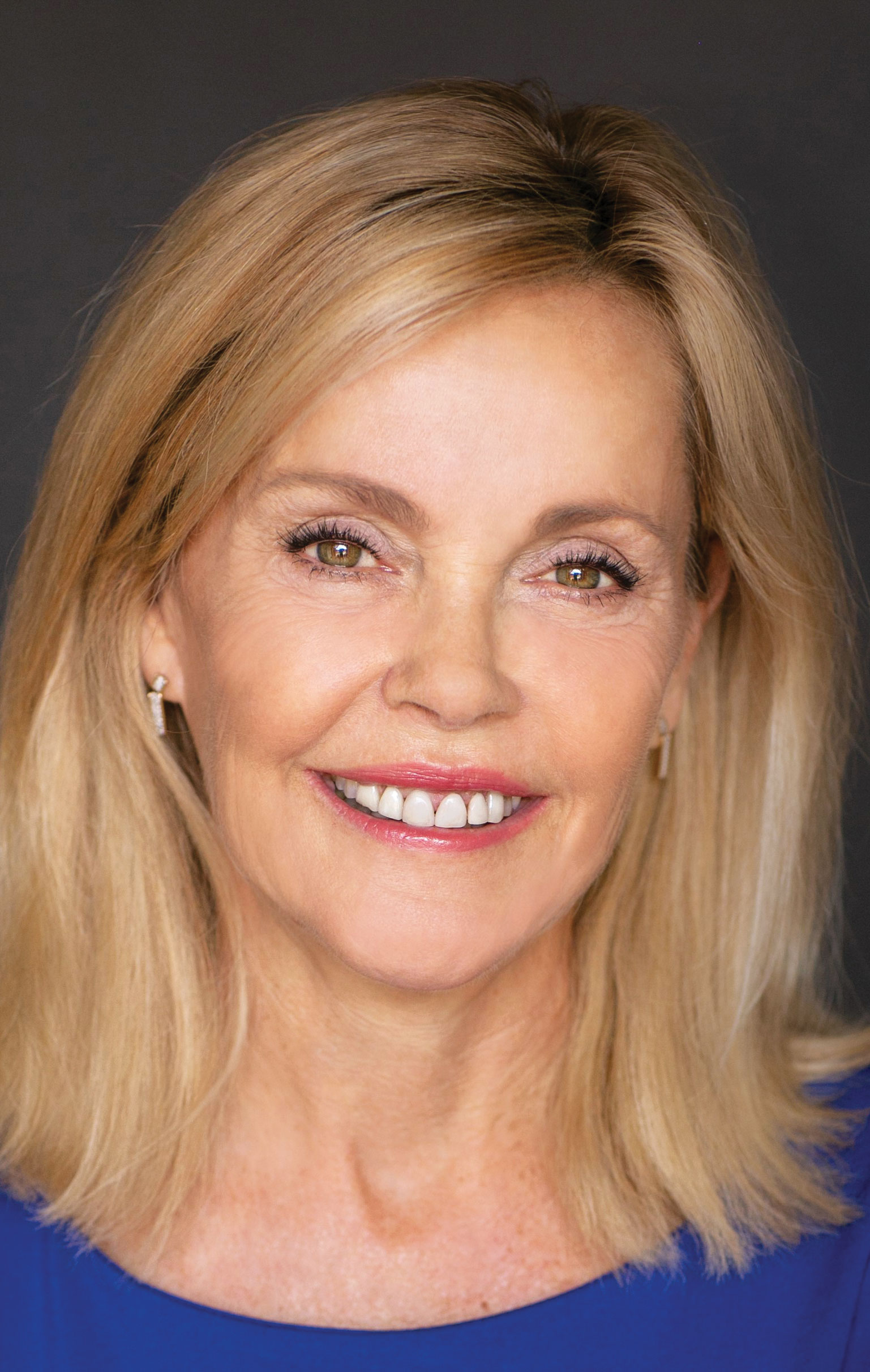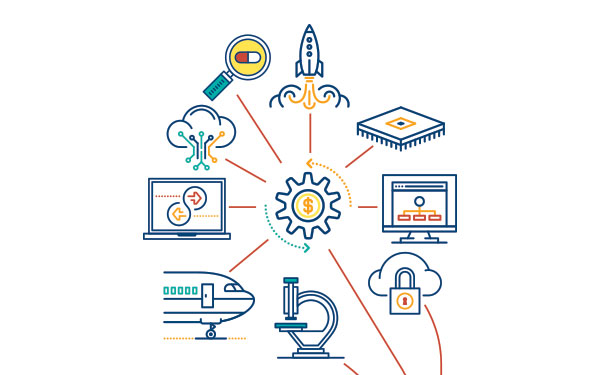When COVID-19 hit Colorado, the Office of Economic Development and International Trade didn’t have long to react. Almost before they could blink, the coronavirus had reached virtually every county and city in Colorado, hospital beds were filling up rapidly, and the economic consequences began mounting.
By the time June rolled around, here were the staggering joblessness numbers:
- As of June 3, Colorado ranked 14th in America among states with the biggest increases in unemployment claims since the pandemic started.
- Colorado experienced a 737% increase in unemployment claims year over year.
- Since the start of the COVID-19 crisis, unemployment claims in Colorado were up 2,356%.
Against that backdrop, OEDIT Executive Director Betsy Markey and her team went to work, mobilizing personnel and marshaling every available resource to help businesses survive and get much-needed aid to displaced workers.
To say the least, it was a crisis unlike any other Markey and her staff had ever faced. In the following interview, Markey talks frankly about the challenges confronted by Colorado and what her state is doing to help businesses and workers recover.
How has OEDIT mobilized to respond to the needs of businesses statewide in the wake of the COVID-19 pandemic and resulting economic recession?
MARKEY: The State of Colorado has reactivated quickly to the evolving pandemic. The Governor established the Council for Economic Stabilization and Growth (CESG) to identify short- and long-term strategic recommendations for Colorado’s economic stabilization, recovery and growth. The CESG is composed of nine committees focused on various aspects of Colorado’s economy with more than 200 advisory council members from every aspect of Colorado’s economy.
The Governor also established the Innovation Response Team (IRT), focused on addressing issues created by the virus and addressing needs such as mass testing for the COVID-19 virus, creating a suite of services for citizens under isolation or quarantine, developing mobile and other technologies to help track the spread of the virus and support infected citizens, and developing locally sourced alternatives for constrained critical medical supplies. One initiative from the IRT is the Colorado Mask Project which has delivered over 82,000 masks to 162 recipient organizations, including homeless shelters, assisted living centers, domestic violence safe houses, immigrant and refugee centers, and other community organizations across 42 counties. By the end of the project, an expected total of 100,00 masks will be delivered to over 200 organizations.
Our Small Business Development Center (SBDC) network mobilized its 15 SBDCs across the state with more than 300 technical consultants to help small businesses research, understand and apply for various funding streams whether local, federal or from nonprofits. They also sent up a business hotline which has served over 3,300 clients through the end of May.

OEDIT also partnered with POLCO and Downtown Colorado Inc. (DCI) to collaborate on a Colorado business survey. Conducted between April 10 and April 30, during the peak of the state’s economic interruption, the survey chronicles the economic challenges facing Colorado businesses. 2,382 survey responses from 60 of Colorado’s 64 counties were recorded. Survey responses were cataloged by business size, industry, urban and rural categorization, specific locations and designated statewide planning regions, and statistically weighted to represent known statewide business parameters. The findings illuminate Colorado’s business preparedness, top challenges, impacts on businesses’ operations, revenue and workforce, and ongoing recovery efforts. This survey will serve as one of multiple data points that OEDIT, the State and the Governor’s Council on Economic Stabilization and Growth will use to create short and long-term economic recovery efforts.
What are Colorado business owners and managers telling you are their major needs right now?
MARKEY: The decline in business revenue has and will continue to impact Colorado’s workforce. Among business owners and operators’ biggest concerns are their ability to pay employees, the safety of their employees, and the substantial loss of revenue stemming from public health business closures. Even though many businesses are trying to minimize layoffs, the severe revenue shortage is causing many to pursue other options that ultimately reduce employee income such as cutting back hours, reducing wages, or furloughing workers.
Businesses also need access to short-term capital. The interruption of business operations and the exogenous decline in business demand has threatened liquidity and solvency. Many businesses have pursued federal relief programs, but still have significant financial need given their decreased revenues.
Finally, we are hearing that businesses need access to accurate, current information. They need regular communication around COVID-19, economic recovery, and available resources. It is vital that OEDIT continues to act as a conduit of information for businesses to make informed decisions about their option.
As more workers lose their jobs every week, what is Colorado doing to help the unemployed through this crisis?
MARKEY: OEDIT has embarked on a massive education campaign to help businesses prepare for and seek federal economic aid programs such as Paycheck Protection Program loans and Economic Injury Disaster Loans. Thanks in part to our outreach efforts, Colorado was second in terms of small business, nonprofits and independent contractors’ access to these federal dollars, with 94,000 loans exceeding $10 billion.
When the crisis subsides, many workers won’t have jobs to go back to. How can the state help retrain and reconnect these displaced workers to gainful employment?
MARKEY: Colorado businesses are evolving in real time to these changing conditions. Our entrepreneurial spirit drives innovation and changes to existing business models. In addition, the state is working to identify programs and partnerships that further that process — such as workforce training initiatives with masks.
Many businesses nationwide pivoted to respond to gaps in the medical product supply chain. Can you share any such anecdotal stories from Colorado?
MARKEY: Through the Colorado Mask Project, the State of Colorado, private sector donors, non-governmental organizations and maker communities have come together to make and deliver non-medical grade cloth masks to vulnerable populations and essential workers across the State. The generosity, social responsibility and community care shown through this work has proven to be an extraordinary display of Colorado’s resilient spirit.
Several Colorado companies pivoted their business models to help manufacture and deliver masks to the vulnerable populations, including Hunter Douglas, Topo Designs, Pearl iZumi, Phunkshun Wear, Denver Mattress Co., Tempur-Sealy, Osprey, Deuter, EcoEnclose, Fashion Design Center, GBS Sports and Melanzana. Transportation and logistics were provided by Peak Beverage, Alliance Moving and Luxe Holdings, among others.
What industries in Colorado do you think are poised to experience a quick and robust recovery?
MARKEY: Colorado’s diverse economy will help ensure our economic recovery, but, in particular, we see three industries in particular poised for a quick recovery:
AEROSPACE
Colorado aerospace is underpinned by a stable federal defense budget and several high-profile bases that generate a range of capabilities and requirements. The industry has been showing robust growth in recent years and this growth is expected to continue. In May, the Pentagon decided that U.S. Space Command would remain in Colorado Springs for at least six years and the location is a front-runner for the permanent base. Furthermore, Colorado is the epicenter of global communications with organizations like Lockheed Martin, the United Launch Alliance, and the U.S. Air Force building, launching, and controlling all of the new GPS III satellite constellation, which allows people across the globe to communicate, navigate and track time.
IT & TECH
The social distancing and isolation measures imposed by governments to combat COVID-19 will make staying virtually connected a high priority in the near future. Many IT & Tech companies in Colorado are dedicated to some aspect of this function. Fortune 500 media giants Liberty Media and DISH Network are headquartered south of Denver and provide avenues for telecommunication and entertainment while in isolation. Companies like Twilio, SendGrid and Ibotta connect retailers to customers through email and mobile apps. Companies like Ping Identity and Optiv help to protect users’ identity during web-based transactions and communication. These companies and many more like them in Colorado will see increased demand as we all adjust to a new, more virtual normal.
BIOSCIENCE
Colorado is home to companies pushing the bounds of medicine like DaVita, Medtronic, Quest Diagnostics, Heart Hero, Spectranetics, Terumo BCT and many others. These companies collaborate with innovative campuses like Catalyst HTI, Anschutz Medical Center and UCHealth, and with the largest concentration of federally funded research labs in the U.S. (at 33) to continue to improve solutions to the world’s most pressing medical problems. As we seek ways to monitor safety and health during and in the wake of this crisis — with devices like thermal scanners, UV lights, and other health-tech and medical devices — Colorado’s experienced bioscience workforce will be ready to deliver.
Is there anything you can do to help the beleaguered hospitality industry recover from this unprecedented setback?
MARKEY: As a consumer-driven economy, enabling consumption is vital to all sectors. Hospitality has been particularly hard hit and we help them best by achieving and maintaining sustainable public health. Public health is critical to restoring consumer confidence. Simultaneously, economic assistance during the economic interruption is vital to business sustainability. We have worked tirelessly to secure access to the federal worker economic support programs that offer economic assistance to sustain industry workers through recovery. The announcement in late May to open restaurants was a major step in helping our hospitality industry.
As more Americans look to return to smaller and more rural communities and the great outdoors, what message can you share about Colorado’s assets?
MARKEY: Colorado’s communities are working tirelessly to identify safe and thoughtful solutions to support visitation. Colorado’s vast outdoors lend themselves to social distancing and the remote communities that support them are coordinating with county public health officials to promote policies that allow enjoyment and relaxation without overwhelming the capacity of the attractions or the local services that support them.
What are people at the CU Anschutz Medical Campus doing to respond to COVID-19?
MARKEY: Dr. Jonathan Samet and his CU Anschutz team have played an integral role in Colorado’s response to COVID-19. As Dean of Public Health, Dr. Samet’s analytic modeling and analysis has informed Colorado’s COVID-19 public health decisions. This is just one of many great examples of Colorado’s world class academic talent helping to inform the state’s public health decisions and economic recovery.
What lessons about resiliency has your state learned from previous recessions and calamities that can be applied now and moving forward?
MARKEY: Colorado’s resilience lies in our economic diversity. Colorado’s economic diversity was a major reason that our state was one of the last states into the recession and among the first out. Our knowledge-based economy continues to generate meaningful contributions and innovations throughout this economic interruption. Remote working has been embraced and Colorado’s collaborative nature shines even brighter in times of crisis. Colorado’s entrepreneurial spirit drives change and innovation in all market conditions. We saw that in the Great Recession, and we see that today. Business models across industries are adjusting to changing market conditions and consumer behaviors and, throughout the state, Coloradans’ innovations are shaping a new way forward.


